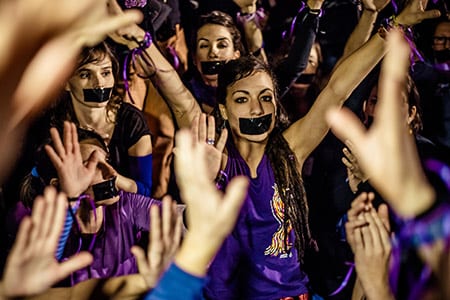
More than 300 human rights defenders were killed in 27 countries last year.
“This has been a growing worldwide crisis,” says Laurel E. Fletcher, co-director of Berkeley Law’s International Human Rights Law Clinic. “It tracks the increase in authoritarian regimes and the rise of popular nationalism. The numbers of human rights activists killed is dwarfed by the far greater numbers affected by States around the world that are using laws and legal regulation arbitrarily to target and restrict legitimate human rights activities.”
With three initiatives, Berkeley Law is bringing attention to the sobering challenges facing defenders, and, hopefully, helping to protect their work by boosting government accountability.
One effort has LL.M. students helping the United Nations Special Rapporteur for Human Rights Defenders prepare his annual global report. Their work includes drafting legal analyses of trends in the types of abuses and violations that defenders face around the world.
Another clinic project provides legal support to the Center for International Law and Justice, which is spearheading development of a proposed international protocol to establish universal guidelines for governments to investigate threats against defenders.
“Threats and intimidation are often the first signs of further human rights abuses and violations,” says Antonia David ’19, a student involved in the project. “This protocol will be an important contribution to international human rights law to safeguard the essential work of these defenders.”
On another front, the clinic collaborated with the Oakland-based Urgent Action Fund for Women’s Human Rights to publish a report that identifies the challenges women human rights defenders confront with increased government crackdowns on their activism—and their successful resistance strategies. Those who defend women’s rights are increasingly targeted for repression, harassment, violence, and even death. Such persecution includes a surge of government attempts to silence LGBTI activists.
The clinic held a public briefing on the report for State representatives at the United Nations in Geneva this past summer to urge governments to adopt its recommendations for providing greater security to these defenders and the populations they serve.
“We have a privilege and a responsibility to do what we can to strengthen human rights protections for defenders,” Fletcher says.
—Andrew Faught